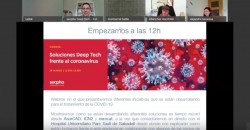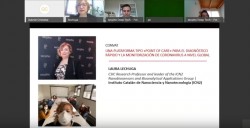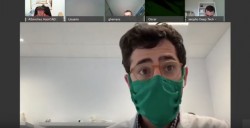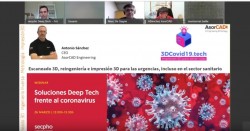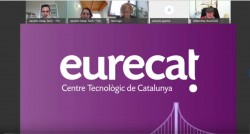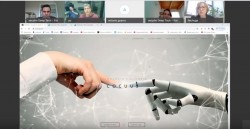Nanoscience and 3D printing against coronavirus
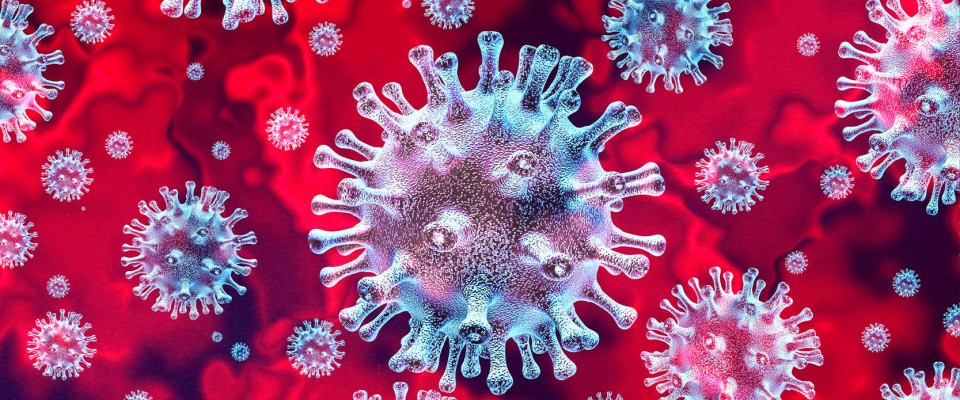
In view of the socio-health emergency caused by COVID-19, last Thursday 26th March secpho organized a webinar with different solutions that photonic and other Deep Tech technologies can offer to face this global challenge.
Sergio Sáez, cluster manager of secpho, made a brief introduction of the session, in which half of the 90 listeners were partners of the cluster and the rest represented technological and health companies, a clear example of how this crisis has accelerated the strong influence of photonic technologies in the health sector.
Professor Laura Lechuga, CSIC Researcher and Head of the Nanobiosensors and Bioanalytical Applications Group at the Catalan Institute of Nanoscience and Nanotechnology (ICN2) explained the CONVAT project, which is funded by the EU to tackle the coronavirus. The project consists of a nanotechnology device with biosensors capable of determining, in less than half an hour, the presence of coronavirus in a person. This point-of-care platform works with a saliva sample that is deposited in a three-centimeter-long nanochip. If the saliva contains the virus, it will bind to the antibodies located in the nanochip and trigger the alarm. For the operation of this device, photonic sensors are used: a beam of light will pass through the device and the light beam will change if it encounters the virus and the antibodies in its path. The light is automatically analysed and the result is transmitted to a smartphone or tablet.
“We already had this technology developed and fully demonstrated in other applications, such as the measurement of bacteria or cancer-related biomarkers,” explains Laura Lechuga, “now we have expanded its application. And she adds that “we have focused on the biological part, we still need to define which protein is going to serve us and which antibodies have to interact at the time of the test”.
From the Parc Taulí University Hospital in Sabadell, Doctor Ferran Fillat, an orthopaedic surgeon and 3D Specialist printer, explained that “the main problem facing healthcare centres is collapse and supply” as all the specialists are recruited to attend to patients and hospitals have broken down stocks of healthcare material.
He also insisted that “there are simple products to replicate and validate with 3D printing, but others are not”. In this case, to speed up the process, “the hospital will guarantee the quality and assume responsibility for the 3D printed pieces”.
Antonio Sánchez, CEO of AsorCAD Engineering, explained the 3D printing process and how the company is collaborating with the maker community to join forces in this socio-health challenge through the 3dcovid19 platform .
For his part, Antonio Guerra, Advanced Manufacturing Engineer at eurecat, explained this technology centre’s initiatives in helping to combat the current situation, such as validation tests for developing masks and helping to produce low-cost respirators on a large scale.
Finally, Daniel Rico, co-founder and director of operations at Cocuus, showed how this company, which specializes in manufacturing laser technology machines applied to gastronomy, has put its know-how at the service of citizens by redesigning a mask for personal use that can be printed in 3D.
For those of you who did not have the opportunity to attend the webinar, you can recover it in the following videos. All the presentations are held in Spanish:
1. Bienvenida y presentación a secpho
5. Iniciativas Eurecat contra el COVID-19. Por Antonio Guerra (Eurecat)
6. Impresión 3D de Cocuus. De la hostelería al coronavirus
You can also check the previous webinars that secpho has organized through our website and youtube channel.
We hope to see you in our next SECPhO Webinar!
